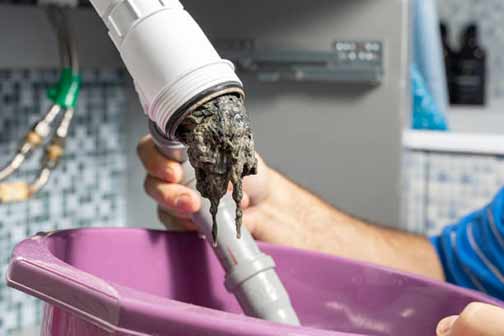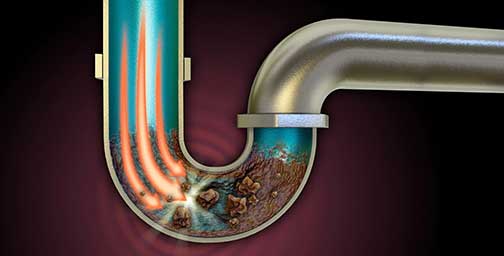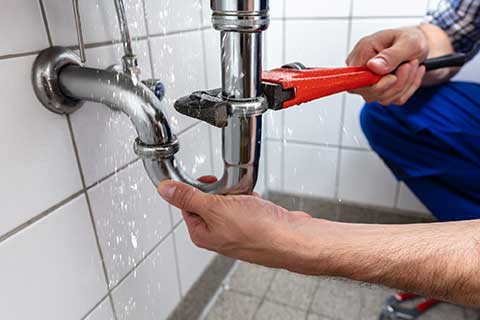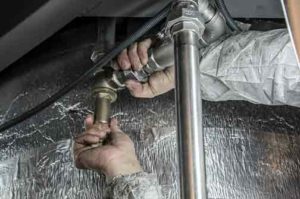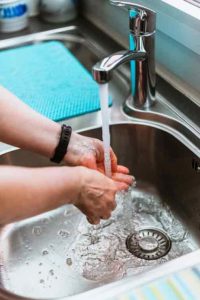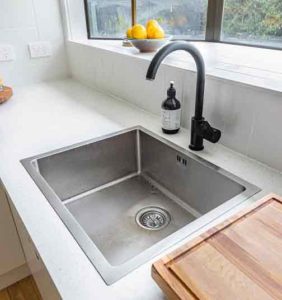A clogged drain is a common problem in the home and commercial building plumbing systems. A drain clog is when wastewater cannot move freely through the drainpipes, or the water moves very slowly. Why do drains get clogged?
There are several reasons why a drain might become clogged. It can be due to natural processes, such as when corrosion narrows old pipes, making it difficult for water to pass through. It could also be due to soil movements that change the position of underground drainpipes.
But the most common causes of clogged drains are artificial, avoidable outcomes of how the drains in a home are used. Toilet drains may clog if something other than human waste is flushed into them, warns Action Properties Management. Kitchen drains are often clogged by a variety of food waste.
In addition to clogs in any drain inside your home, clogs can also occur in different sections of the drain system outside your house. Clogs close to drain openings inside the home are less severe than clogs deep inside the system.
The first type of drain clog will only affect the plumbing fixtures attached to that drain. But when a clog happens in a location deep inside the drainage system, the effect of that blockage will often be seen in all the plumbing fixtures in your home.
Why multiple drains in your home are clogged at once
Clogs affecting multiple drains in your home simultaneously signify serious issues within the home’s drain systems. That is because although each drain opening in the house appears separate from the others, they are connected.
Home drain systems comprise a network of pipes with a central drainpipe – the main sewer line – which collects all the wastewater from the house and carries it to the city sewer. This main sewer line is linked to the various plumbing fixtures in your home via connecting drain pipes.
If one of the drainpipes that feed into the main sewer line becomes clogged, the effect is only felt in the plumbing fixture that uses the drain. But if the clog happens in the main sewer line of your home, all the smaller drainpipes that connect to it will not be able to drain effectively.
The clog in the main sewer line creates a bottleneck that keeps wastewater from the plumbing fixtures in your home from flowing through the main sewer line. Instead of flowing into the city sewers, the water collects inside the pipes and may flow backwards into the house.
In most cases, the problem first appears in floor drains inside the home and other ones close to the ground. These drains become slower such as when bathwater doesn’t drain quickly when you shower. You may also find that toilets flush very slowly.
Other signs of a clog in your main sewer line are gurgling sounds from your home’s drains every time you use them, movement in the water inside the toilet bowl when you use the kitchen sink or washing machine and foul odors from drain openings in the house.
Frequent problems with your home’s drains may also signify deeper issues with the main sewer line. If several drains in the house are slow or showing signs of blockage, you may assume that the cause of the problem is in your home’s main sewer line.
Why your main sewer line is blocked and what you can do about it
Here are common reasons why your home’s main sewer line may be clogged:
Pouring grease into the drain:
Fats, grease and oils (FOGs) are the number one cause of drain clogs. These materials stick to pipes and walls and debris attached to them.
Flushing forbidden items into your toilets:
Putting anything other than human waste and toilet paper into your toilet can result in a sewer line clog.
Sagging sewer lines:
This is caused by movements in the soil surrounding the sewer line. Burrowing animals, sinkholes and soil movements due to house settling can cause these.
Aged sewer pipes
This is a common issue with clay and metal drainpipes. As these pipes age, their channels become narrower due to corrosion and sedimentation.
Tree root infiltration
Tree roots may find their way into sewer lines through hairline cracks in the pipe. Once inside the pipe, they can grow until they eventually block it.
What should you do if you are experiencing frequent drain issues in your home and multiple drains show signs of blockage?
The first step is verifying that the problem is with your main sewer line. Have a plumber perform a sewer camera inspection to pinpoint the exact location of the blockage in the sewer line. How you remove the clog depends on the location and what is causing it.
